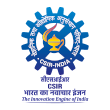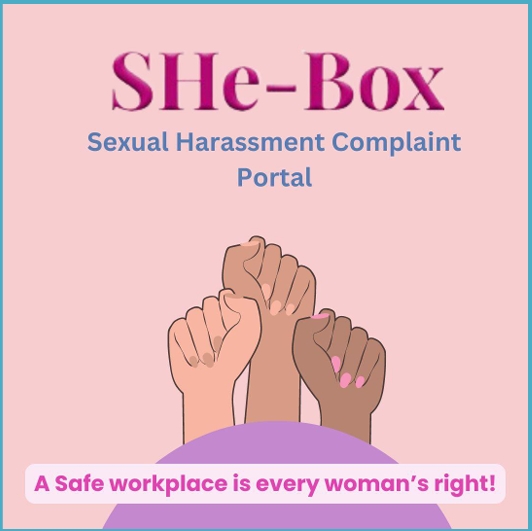पारंपरिक ज्ञान डिजिटल लाइब्रेरी इकाई (टीकेडीएल)
The Traditional Knowledge Digital Library (TKDL) is a pioneering initiative of India to protect Indian traditional medicinal knowledge and prevent its misappropriation due to wrong grant of patents. Traditional Knowledge (TK) is a valuable yet vulnerable asset to indigenous and local communities who depend on TK for their livelihood. In the context of traditional medicine for instance, the healthcare needs of a vast population and livelihood of millions of people in India is dependent on traditional medicine. Globally, too there has been renewed attention and interest in the use of traditional medicine increasing its vulnerability to exploitation. The grant of a US patent to wound healing properties of turmeric flagged the danger of complacence in proactively guarding the traditional knowledge. The time, effort and money spent on revocation of turmeric patent at USPTO highlighted the need for putting in place a proactive mechanism for TK protection. The problem related to Indian TK is further compounded by the fact that India’s traditional medicinal knowledge exists in languages such as Sanskrit, Hindi, Arabic, Urdu, Tamil etc. that too in ancient local dialects that are no more in practice. Thus, the published Indian TK literature is neither accessible nor understood by patent examiners at international patent offices. Such challenges exist in all forms of traditional knowledge in India, making them susceptible to misappropriation.
Traditional Knowledge Digital Library has overcome the language and format barrier by systematically and scientifically converting and structuring the available content of the ancient texts on Indian Systems of Medicines i.e. Ayurveda, Siddha, Unani and Sowa Rigpa as well as Yoga, into five international languages, namely, English, Japanese, French, German and Spanish, with the help of information technology tools and an innovative classification system - Traditional Knowledge Resource Classification (TKRC). As on date, more than 5.0 lakh formulations/ practices have been transcribed into the TKDL database.
TKDL technology integrates diverse disciplines such as Ayurveda, Unani, Siddha, Yoga, modern science & modern medicine as well as diverse languages such as Sanskrit, Arabic, Urdu, Persian, Tamil, English, Japanese, Spanish, French, German. Currently, TKDL is based on texts of Indian Systems of Medicine, which are available in open domain and can be sourced by any individual/organization at national/international level. TKDL acts as a bridge between these texts (prior art) and patent examiners worldwide.
Currently, TKRC has structured and classified the Indian Traditional Medicine System into several thousand subgroups for Ayurveda, Unani, Siddha and Yoga. The creation of the TKDL and TKRC enabled incorporation of about 200 sub-groups under A61K 36/00 in International Patent Classification instead of few sub-groups earlier available on medicinal plants under A61K 35/00, thus enhancing the quality of search and examination of priorart with respect to patent applications field in the area of traditional knowledge.
The TKDL has also set international specifications and standards for setting up of TK databases based on TKDL specifications. This was adopted in 2003 by the Intergovernmental Committee (IGC) of WIPO on Intellectual Property and Genetic Resources, Traditional Knowledge and Expression of Folklore in their Fifth session. As of May 2024, the much-awaited WIPO treaty on Intellectual Property genetic resources (GR) and associated TK was concluded. Notable is that in the Article 6 recommends establishing information systems such as databases of GR associated TK. This is a recognition of the efforts leading to the creation of TKDL and its immense utility.
At present, as per the approval of Cabinet Committee on Economic Affairs, access of TKDL is available to seventeen Patent Offices (European Patent Office, United State Patent & Trademark Office, Japan Patent Office, United Kingdom Patent Office, Canadian Intellectual Property Office, German Patent Office, Intellectual Property Australia, Indian Patent Office, Chile Patent Office, Intellectual Property Corporation of Malaysia, Rospatent- Intellectual Property Office of Russia, Peru Patent Office, Spanish Patent and Trademark Office, Danish Patent, Trademark office, National Industrial Property Institute, France and Eurasian Patent Organization), and Intellectual Property Office of the Philippines under TKDL Access (Non-disclosure) Agreement. As per the terms and conditions of the Access agreement, examiners of patent office can utilize TKDL for search and examination purposes only and cannot reveal the contents of TKDL to any third party unless it is necessary for the purpose of citation. TKDL Access Agreement comprises in-built safeguards on non-disclosure to protect India’s interest against any possible misuse.
In addition, third party submissions or pre-grant oppositions (as per provisions available in national laws) are being filed at various Patent Offices, along with prior art evidences from TKDL. Significant impact has already been realized. So far globally close to 370 patent applications have either been rejected/ set aside/ withdrawn/ amended/ abandoned based on the prior art evidences present in the TKDL database. This is with minimal cost and in a short period of time, whereas APEDA had to spend about seven crores towards legal fee only for getting few claims of Basmati rice patent revoked.
The TKDL is proving to be an effective deterrent against bio-piracy and has been recognized internationally as a unique effort. TKDL has set a benchmark in TK protection around the world, particularly in TK-rich countries, by demonstrating the advantages of proactive action and the power of strong deterrence. The key here is preventing the wrong grant of patents by ensuring access to TK related prior art for patent examiners, without restricting the use of traditional knowledge.
Work towards digitization of traditional agricultural practices and traditional metallurgical knowledge from India into the TKDL has been initiated.
For further query on TKDL and Access Agreement (for Patent Offices), contact Head, CSIR-Traditional Knowledge Digital Library Unit (email: head[dot]tkdl[at]csir[dot]res[dot]in)

 पेंशनर्स कॉर्नर
पेंशनर्स कॉर्नर स्क्रीन रीडर एक्सेस
स्क्रीन रीडर एक्सेस मुख्य सामग्री पर जाएं
मुख्य सामग्री पर जाएं






















